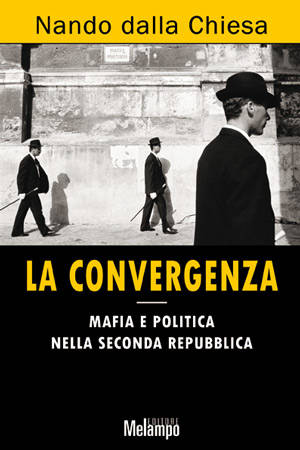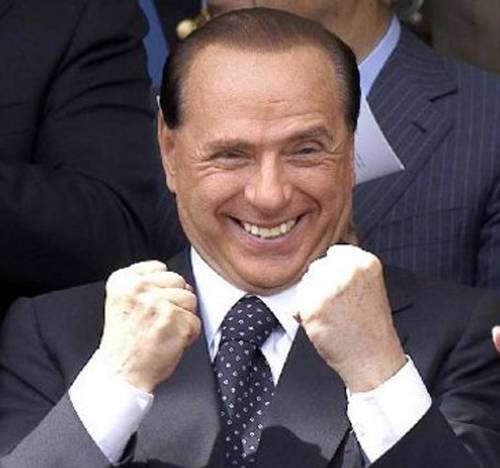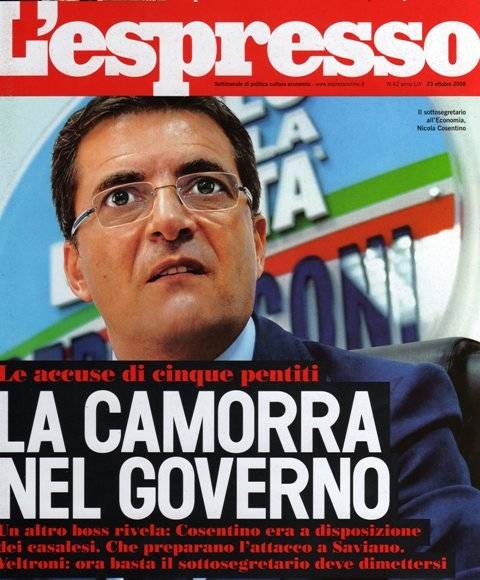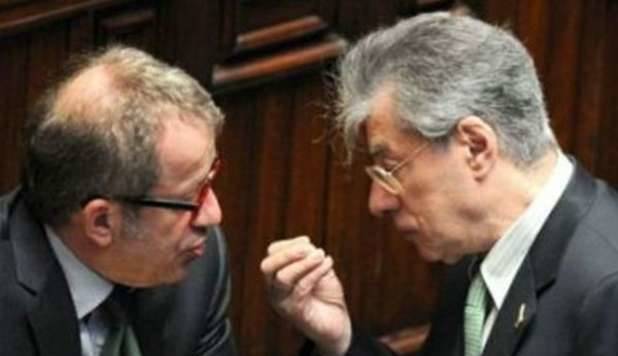Berlusconi: Cheering from the Sidelines
ROME – The aging Italian men pruning our fifty olive trees this week were discussing, not the crop, but the spread, and using the word knowledgeably and in English. They are hardly alone. Aside from the cruise ship disaster, these days talk tends to turns to the economic crisis and the financial sacrifices Italians are being called upon to make because of it. Yet until only a few months ago, half of Italy had no idea that there was a problem with the economy. Even when they heard talk on the radio or TV about the Greek economic disaster, these Italians were reassured by government spokesmen and by that part of the press that was and is government controlled that Italy was safer, better, more secure, thanks to limited credit card debt and a penchant for saving.
As a result, when Mario Monti and his professorial team took office in a sleight-of-hand shiftonly two months ago with orders to put Italy back on track, many here were caught by surprise. On a phone-in radio news program, an irate listener complained, “The journalists are at fault! We were not even told about the crisis.” He had a point: the former Premier Silvio Berlusconi, intending to be reassuring, insisted again and again in public that the problem was one of confidence, and therefore not real. The public was told that outsiders in a vicious foreign press along with a vindicative, politicized Italian magistracy were using scare tactics for devious purposes.
Prodded by the stronger European leaders and by international banks with investment in Italian bonds, Monti then appealed to Italians to make sacrifices: pay higher taxes, take home lower wages and put an end to such protectionist, price-fixing corporations as pharmacies, taxi drivers (here a problem of license selling), and the notaries public authorized to legitimize all legal dealings.
The fallout from this is that many an Italian who voted for Berlusconi in the past is already wishing he were back. “Life was better,” they say. “Everything costs too much all of a sudden, and it’s Monti’s fault.” Berlusconi could hardly be blamed for relishing the moment. Indeed, as our banker friend, a professor of economics, said heatedly today, “Just now Berlusconi is sitting back and enjoying this, saying, ‘The spread is terrible, and Italy has just been downgraded. And to think: people blamed us, instead of Monti. But now they can see the truth.’”
Berlusconi has a two more reasons to crow from the sidelines. The first is that the detested election law known as the “Porcellum,” which translates roughly as “dirty pig law,” remains on the books. As a result, the Italian Parliament is likely to continue to have an exceptionally high number of well-paid appointees rather than elected members. Under this law, voters cannot vote for a candidate by name, but solely for the party list, meaning that the party bosses in the traditional smoke-filled room personally select those faithful who can be counted upon to toe the party line. How carefully a candidate toes that line helps establish how far down on the list his name will appear.
Not surprisingly, this law is criticized as blatantly undemocratic, and over 1.2 million Italians signed a referendum calling for the Porcellum to be overturned. Before this could happen, Italy’s high constitutional court had to rule on whether the referendum was valid enough to be put before the public. The court ruled against, and the referendum cannot take place. The reasons will not be fully explained for some days to come, but a principle justification seems to be that referenda deal with elements of a law, not its abrogation, since total abrogation would leave a constitutional void. Whether or not the members of the court voted with conscience (and there is no reason to assume they did not), the suspicion remains that, simply because the Porcellum entrusts decision-making to the party bosses, even those on the left are secretly satisfied. Each political party is convinced that it can turn this unhealthy law to its own use.
The third reason that Berlusconi appears in good form is that this Thursday Parliament voted against lifting immunity from a Neapolitan politician, Nicola Cosentino, 52, under investigation for allegedly being the political protector of the gangsters of Casal di Principe (the “Casalesi,” as this branch of the Camorra is called). Roberto Maroni of the Northern League said that his party, against Berlusconi, would join those voting for the lifting of immunity—meaning in fact for Cosentino’s arrest. But when the time came, ignoring Maroni, MPs from the League voted for protecting Cosentino, and their vote tipped the balance. The vote was by secret ballot, as requested by Berlusconi’s Freedom Party (PdL), and ended with 298 in favor, 309 against. Why, when the League has made legality a poitical cornerstone? The guessing is that its ailing, truculent leader Umberto Bossi and Maroni are at such loggerheads that Bossi’s troops chose this occasion to make a show of power.
But there can be other reasons why Parliament protected Cosentino. “Was it solely to protect their caste?” asked Nando Dalla Chiesa, whose father, Carabinieri General Carlo Alberto Dalla Chiesa, was murdered by the Mafia in Sicily.
Dalla Chiesa, the author of La Convergenza, Mafia e Politica nella Seconda Repubblica (Converging: Mafia and Politics in the Second Republic0 believes that the reason is the economic benefits showered upon friends and family by the links with the Casalesi, rather than solely a sense of caste solidarity. As a result, “We have been given this terrible picture of the State: the Carabinieri, police and magistrates, although they’re regularly accused of careerism by colleagues in the ‘network,’ have acted, arresting, one by one, every last member of the Casalesi. But then Parliament steps in to protect the [Casalesi’s] political connection.” Nando Dalla Chiesa








































i-Italy
Facebook
Google+
This work may not be reproduced, in whole or in part, without prior written permission.
Questo lavoro non può essere riprodotto, in tutto o in parte, senza permesso scritto.